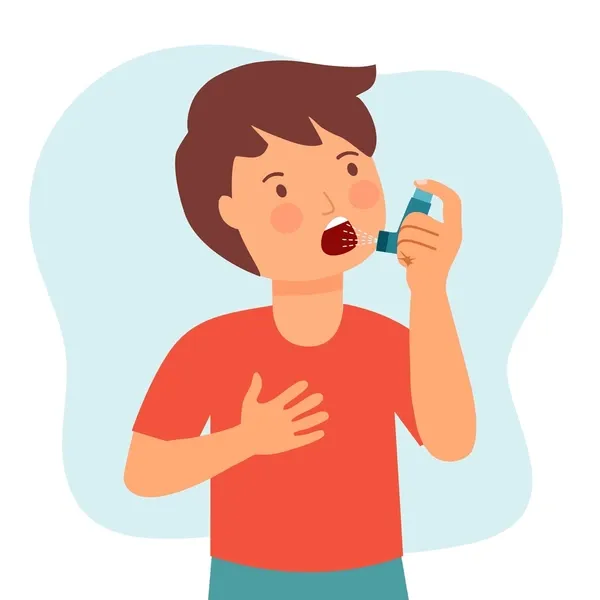What Causes It?
Genetic predisposition - Family history of asthma or allergies increases risk, with studies in Indian families showing hereditary patterns
Allergies - Children with allergies to airborne substances like pollen, dust mites, pet dander, or mold have higher asthma risk, particularly common in Indian urban environments
Respiratory infections - Viral infections like respiratory syncytial virus (RSV) in early childhood may increase asthma risk, a common concern in densely populated Indian cities
Environmental factors - Exposure to air pollution, which is significant in many Indian urban centers, tobacco smoke, or other irritants can trigger asthma development
Indoor air pollution - Use of biomass fuels for cooking in rural Indian households is strongly associated with childhood asthma development
Early life factors - Premature birth, low birth weight, or exposure to certain medications during pregnancy
Urbanization - Children from urban areas in India show significantly higher asthma rates compared to rural settings
Gender - Studies in India confirm that before puberty, asthma is more common in boys; after puberty, it becomes more common in girls
Socioeconomic factors - In India, higher socioeconomic status is associated with increased asthma risk, possibly due to Western lifestyle influences
Climate and seasonal variations - Monsoon seasons and humidity changes in India can trigger asthma symptoms in susceptible children
Signs & Symptoms
Wheezing - A whistling sound when breathing, especially when exhaling
Coughing - Often worse at night, early morning, or during/after physical activity
Shortness of breath - Difficulty breathing that may worsen with activity
Chest tightness or pain - Feeling like something is squeezing or sitting on the chest
Rapid breathing - Breathing at a faster rate than normal
Trouble sleeping due to coughing or breathing difficulties
Fatigue - Tiredness that may result from disrupted sleep or increased breathing effort
Exercise intolerance - Difficulty keeping up with peers during physical activity
Recurrent respiratory infections - More frequent or severe colds that often go to the chest
Symptoms that vary in frequency and intensity - May be mild, moderate, or severe
Symptoms that worsen at night or early morning - A characteristic pattern of asthma
Symptoms triggered by specific exposures - Such as allergens, cold air, exercise, or infections
In young children, irritability, difficulty feeding, or slower weight gain may be signs
